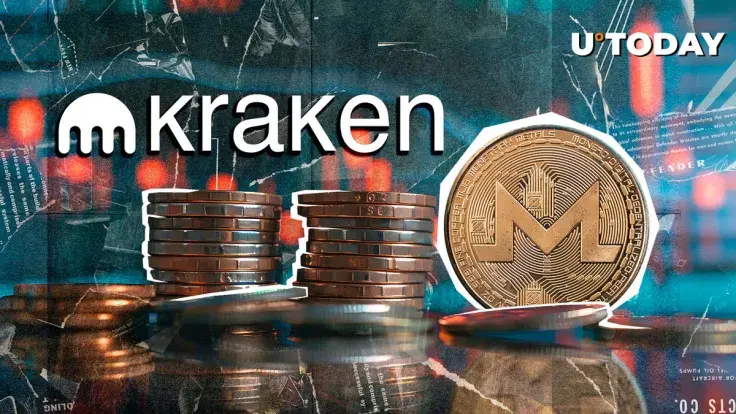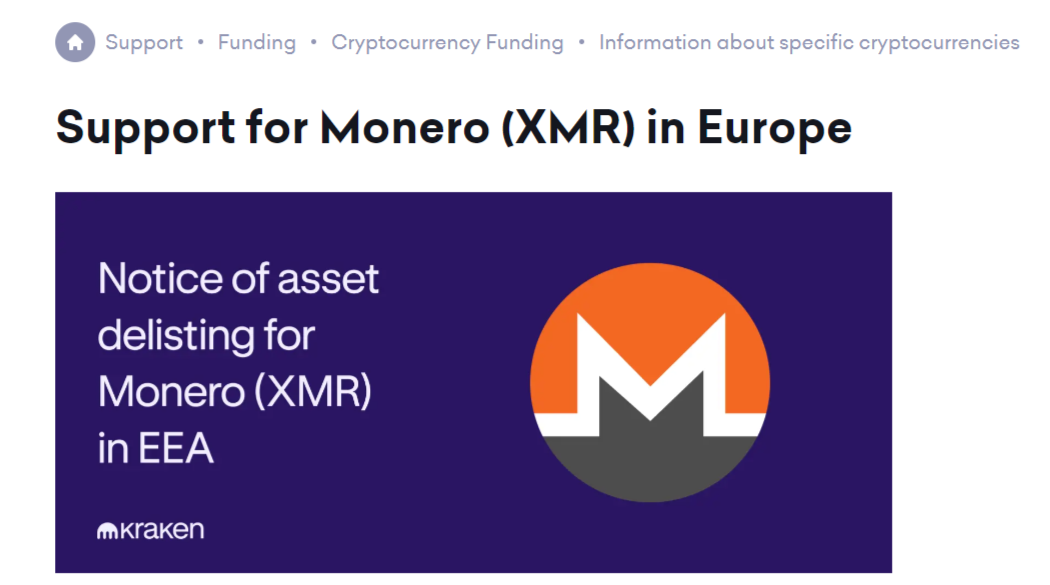
Monero (XMR), the largest and most popular privacy-centric cryptocurrency, faces delisting from Kraken crypto exchange. Users from Europe have only 30 days left to trade XMR pairs, but the Monero (XMR) founder treats this step as a quality mark for his project.
Crypto exchange Kraken delists Monero (XMR) in Europe
Yesterday, Oct. 1, 2024, veteran cryptocurrency exchange Kraken announced it would delist Monero (XMR) for all European users by the end of this month. Trading in XMR/USD, XMR/EUR, XMR/BTC and XMR/USDT pairs will be halted on Oct. 31 for all customers registered in EEA, the statement says.

The team of Kraken stressed that this decision was made due to an increased regulatory crackdown on centralized exchanges, and privacy coins in particular:
After thorough consideration, and exploration of all viable alternatives, we concluded we have no choice but to delist Monero (XMR) in the European Economic Area (EEA) due to regulatory changes.
Advertisement
As such, on Oct. 31, trading in XMR pairs and Monero deposits will both be halted. Then, until Dec. 31, 2024, traders will be able to withdraw their XMR holdings.
On Dec. 31, all remaining XMR will be automatically converted into Bitcoin (BTC), the largest cryptocurrency, at the going market rates.
Converted XMR will be redistributed among affected holders on Jan. 6, 2025, the team says.
On the announcement, the Monero (XMR) price dropped by 7.2%. The asset is changing hands at $142.17, the lowest since early August.
Monero (XMR) founder Spagni: They can't squeeze enough information from XMR privacy
As per CoinGecko's data, together with Gate.io and KuCoin, Kraken was among the last remaining tier-1 exchanges to support XMR trading.
Commenting on the delisting, the Monero (XMR) founder and long-running lead contributor Riccardo Spagni, attributed it to the fact that the asset remains untraceable for law enforcers and investigators.
As for crypto users, he recommended buying Monero (XMR) with Bitcoin (BTC) on noncustodial services and compared the challenges of using privacy coins with messaging with PGP.
 Vladislav Sopov
Vladislav Sopov Dan Burgin
Dan Burgin